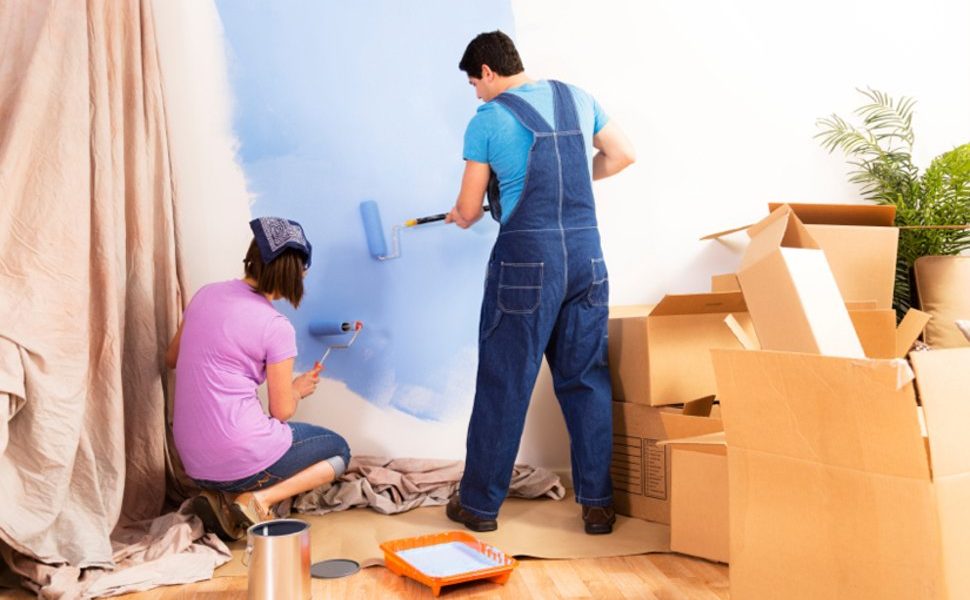5 House Flipping Mistakes to Avoid
These days, house flipping is a popular concept. There are entire TV shows devoted to it. It may even be something you’ve thought about doing yourself.
The premise is simple: You buy a home that might not be in the best condition. Because of its state of disrepair, you get it for a good deal. You spend a few weeks fixing the place up, slapping on a new coat of paint – literally or figuratively – then quickly list and get the place sold. You should walk away with a tidy little profit.
Yes, on paper, it’s pretty simple. But in practice, there are a number of reasons why your house flip can go wrong.
Here are five house flipping mistakes to avoid that could derail your investment:
- Not having enough money.
- Not having a business plan.
- Not having property insurance.
- Not understanding the market.
- Overpricing your listing.
Not Having Enough Money

You’ve probably heard the old expression about how you need to spend money to make money.
Well, that’s certainly true in house flipping. Before you can realize a profit, you’ve got to sink a little money into fixing the place up – making repairs, adding new fixtures, replacing appliances and more. How much exactly all of this could cost depends on the upgrades you are willing to make and the materials you want to use. For example, if you want to replace the countertops in the kitchen, the difference between choosing marble or granite can make a big difference.
But what happens if you buy a house that’s in disrepair, and then realize you don’t have the resources you need to fix it up? That can wreck all your plans for a successful house flip. Always make sure you’ve got some cash on hand before you invest in a house flip property.
Not Having a Business Plan

House flipping isn’t just about getting the place sold. It’s about getting the margins right. It requires you to not overpay on the front end; to stay on time and on budget as you make repairs; to list and sell expediently; and to get a certain sale price.
If any of those components are out of place, you may end up losing money on your house flip. That’s what makes it so necessary to have a business plan where you lay everything out in advance – and maybe leave yourself a little room for error.
A business plan could include:
- A list of all the repairs you want to make.
- A list of prices for everything you want to replace so you can stay on budget.
- A schedule to make sure you are spending the right amount of time on certain projects.
Not Having Property Insurance

One of the top house selling tips for flippers: Get insured.
Yes, really. Property insurance isn’t just for your residential property. It can also help you protect your house flip against fire, flood or items and materials lost to theft.
Yes, it’s going to eat into your margins just a little. But imagine the alternative – buying an investment property and losing everything in some kind of natural disaster. Insurance can make that a non-issue.
Not Understanding the Market

A successful house flip isn’t just about the property; it’s about the market itself.
Simply put, you can get a great deal on your initial investment, you can spruce the place up and you can list it for a competitive price. But if the market’s bad, you may still have a hard time selling.
Intimate knowledge of your local real estate market is essential to any successful flip. Look at the comparable home sales in the neighborhood. How much are houses with similar floor plans and square footage listing for? How are neighboring houses that have been listed doing? Have they gotten any offers or has the home selling process been really slow? Have those offers been below asking price, and by how much? How long have neighboring houses been on the market? These are all helpful questions to ask yourself before purchasing a home you have the intention of flipping.
Overpricing Your Listing

When it comes to how to sell a house, pricing is always key. And that’s very much the case when you’re flipping.
If you undervalue it, you’re leaving money on the table. And if you overprice it, you won’t get any takers – and the property may just languish on the market. Either way, your investment is in trouble.
Make sure you do your due diligence, checking comps and surveying the market, before you price your home. And by the way, you’ll want to start thinking about pricing before you invest, ensuring it’s actually going to be worth your time.
House flipping can be exciting – and profitable. But that’s only possible when you take care to do it right, avoiding these common errors.
